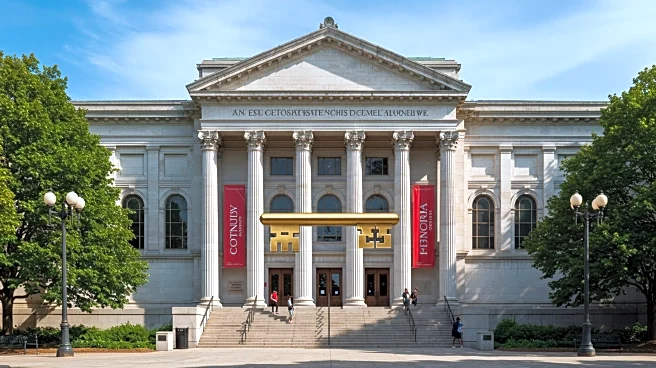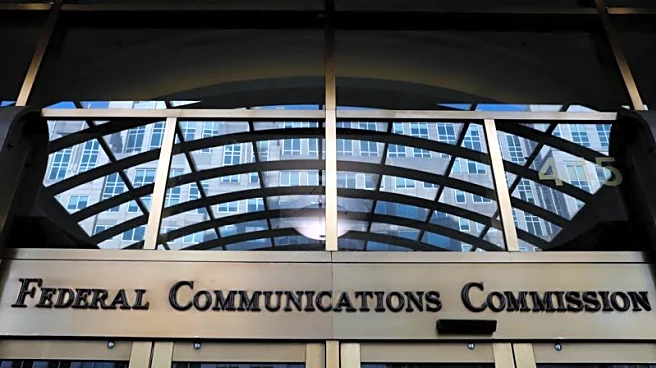What is the story about?
What's Happening?
The Trump administration has announced a comprehensive review of eight Smithsonian museums to ensure they align with the cultural directives set forth by President Trump. The White House has communicated to the Smithsonian Institution that the review aims to reflect 'unity, progress, and enduring values that define the American story.' This initiative is part of a broader effort to celebrate American exceptionalism and remove divisive or partisan narratives from cultural institutions. The Smithsonian has acknowledged receipt of the letter and is considering its implications while maintaining its commitment to scholarly excellence and factual historical presentation. Georgetown University professor Lisa Strong expressed concern over potential interference in museum content, emphasizing the importance of independent research and accurate representation in exhibitions.
Why It's Important?
This review could significantly impact how American history and culture are presented in national museums, potentially altering public perception and understanding. Museums are trusted institutions that play a crucial role in educating the public and preserving historical integrity. The administration's directive may lead to changes in exhibition content, which could influence public trust and the perceived objectivity of these institutions. Critics argue that such government involvement might compromise the independence of museum professionals and the accuracy of historical narratives. The outcome of this review could set a precedent for future interactions between government directives and cultural institutions, affecting how history is curated and presented to the public.
What's Next?
The Smithsonian is currently reviewing the administration's letter and will likely engage in discussions to address the concerns raised. Museum professionals and stakeholders may advocate for maintaining the integrity of their research and exhibitions. The review process is expected to unfold over the next 120 days, during which changes to museum content may be proposed. Public and professional reactions could influence the final decisions, with potential resignations or protests from museum staff if they feel their independence is threatened. The broader cultural community may also weigh in, potentially leading to debates about the role of government in cultural preservation.
Beyond the Headlines
The review raises questions about the balance between national identity and historical accuracy in cultural institutions. It highlights the ethical considerations of government influence on educational content and the potential for ideological bias in historical interpretation. Long-term implications could include shifts in how museums approach controversial or complex historical topics, affecting cultural discourse and public education. The initiative may also spark discussions about the role of museums in fostering national unity versus presenting diverse perspectives.
















